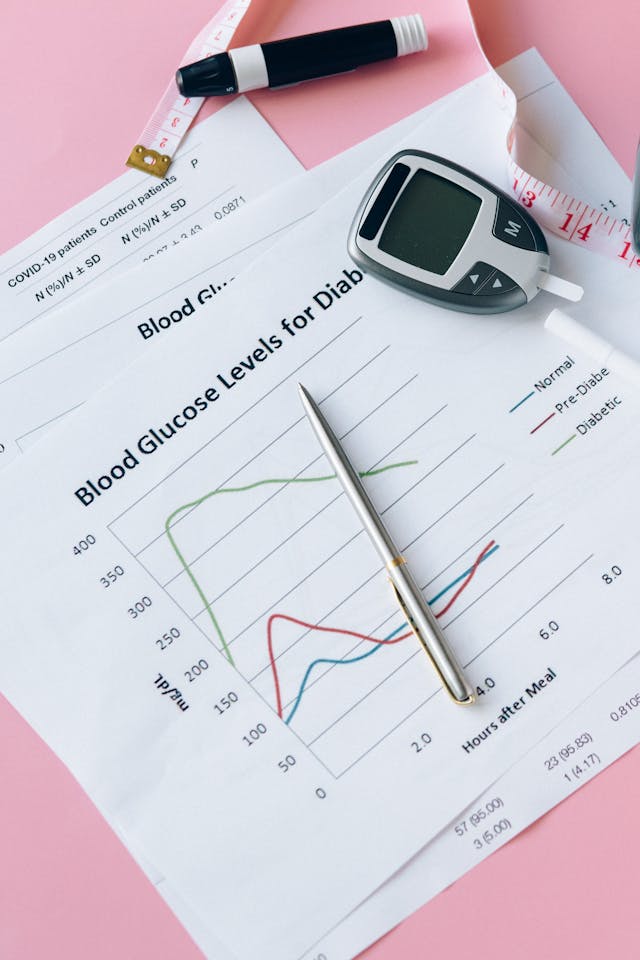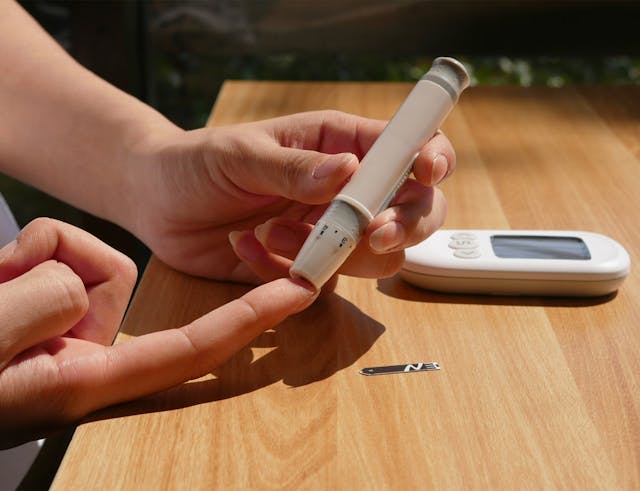Gestational diabetes is a type of diabetes that develops during pregnancy and typically disappears after childbirth.
It occurs when the body cannot produce enough insulin to meet the extra needs during pregnancy, leading to elevated blood sugar levels.
Although gestational diabetes can be temporary, it poses significant health risks to both the mother and the baby, making early detection and management crucial.
 Causes of gestational diabetes
Causes of gestational diabetes
Gestational diabetes is primarily caused by hormonal changes during pregnancy.
These hormones can make your body's cells more resistant to insulin.
As the pregnancy progresses, this insulin resistance increases, and the pancreas must produce more insulin to keep blood sugar levels normal.
However, when the pancreas cannot keep up with the increased demand, gestational diabetes occurs.
Several factors may increase the risk of developing gestational diabetes, including:
Obesity
Women who are overweight are more likely to develop gestational diabetes.
Family history
A history of diabetes in close family members can elevate the risk.
Age
Women over 25 or 30 years old are at a higher risk.
Previous gestational diabetes
If you've had gestational diabetes in a previous pregnancy, you are more likely to develop it again.
Symptoms of gestational diabetes
Gestational diabetes often develops without obvious symptoms, which is why routine screening is essential.
However, there are some symptoms to be aware of:
1. Increased thirst
Feeling excessively thirsty and drinking more fluids than usual can be a sign of high blood sugar.
2. Frequent urination
Along with increased thirst, the need to urinate frequently is another indicator.
3. Fatigue
Feeling more tired than usual, even with adequate rest, could be related to elevated blood sugar levels.
4. Blurred vision
Gestational diabetes can affect the eyes, causing blurry vision.
5. Infections
Women with gestational diabetes may be more prone to infections, particularly bladder and skin infections.
6. Sudden weight gain
Rapid weight gain during pregnancy could be a symptom of underlying issues, including gestational diabetes.
How does gestational diabetes affect the mother and baby?
For the mother
Increased Risk of High Blood Pressure (Preeclampsia)
Gestational diabetes raises the chances of developing high blood pressure and preeclampsia during pregnancy.
Delivery complications
Women with gestational diabetes are more likely to require a C-section due to complications like high birth weight in the baby.
Long-term diabetes risk
Women who develop gestational diabetes are at an increased risk of developing type 2 diabetes later in life.
For the Baby
Macrosomia (Large Baby)
Gestational diabetes can cause the baby to grow larger than average, increasing the risk of complications during delivery, such as shoulder dystocia.
Hypoglycemia (low blood sugar)
After birth, the baby may experience low blood sugar because their insulin production was high during pregnancy to compensate for the mother's elevated blood sugar.
Preterm Birth
Gestational diabetes can lead to early delivery, which may result in complications related to premature birth.
Increased risk of childhood obesity and type 2 diabetes
Babies born to mothers with gestational diabetes may be at higher risk for developing obesity and type 2 diabetes later in life.

Managing gestational diabetes
The key to managing gestational diabetes lies in controlling blood sugar levels.
Here are some essential steps:
Dietary changes
A balanced and healthy diet is crucial, women with gestational diabetes should focus on eating complex carbohydrates, lean proteins, healthy fats, and plenty of vegetables.
Monitoring carbohydrate intake and spreading meals evenly throughout the day can help prevent blood sugar spikes.
Physical activity
Regular physical activity can improve the body's sensitivity to insulin and help regulate blood sugar levels.
Light exercises like walking or swimming for 30 minutes daily can make a difference.
Blood sugar monitoring
Women diagnosed with gestational diabetes should regularly monitor their blood sugar levels at home to ensure they are staying within the recommended range.
Medical treatment
In some cases, lifestyle changes may not be enough to control blood sugar levels.
If necessary, doctors may prescribe insulin or other medications to help manage gestational diabetes.
Prenatal care
Regular prenatal check-ups are essential for monitoring the health of both the mother and the baby.
Ultrasounds and fetal monitoring may be conducted more frequently to ensure the baby is growing at a healthy rate.
How to prevent gestational diabetes?
The good news is that by adopting certain lifestyle changes, it is possible to reduce the risk of gestational diabetes in the future.
Here are some practical steps to help prevent gestational diabetes:
Maintain a healthy weight
Weight management is one of the most effective ways to prevent gestational diabetes.
Women who are overweight or obese are at a significantly higher risk of developing GD, as excess body fat can make it harder for the body to use insulin properly.
Before pregnancy
If you are planning a future pregnancy and have excess weight, losing even a small amount can significantly reduce your risk of gestational diabetes.
Aim for a gradual, sustainable weight loss through a balanced diet and regular physical activity.
During pregnancy
Gaining too much weight during pregnancy can increase the likelihood of developing gestational diabetes.
Follow your healthcare provider’s recommendations for appropriate weight gain based on your pre-pregnancy body mass index (BMI).
Stay active
Regular exercise before and during pregnancy can improve insulin sensitivity and reduce the risk of gestational diabetes.
Eat a balanced diet
A diet rich in whole grains, lean proteins, and healthy fats, along with the limited intake of processed foods and added sugars, can help regulate blood sugar levels.
Regular glucose testing
Women who have had gestational diabetes in the past should consider regular glucose testing, even when they are not pregnant, to catch any early signs of diabetes.
Conclusion
Gestational diabetes is a common but serious condition that requires attention and management.
Every pregnant woman should know symptoms of gestational diabetes.
Early detection through regular prenatal check-ups is key to preventing complications, ensuring a safe and healthy outcome for both mother and child.


You must be logged in to post a comment.